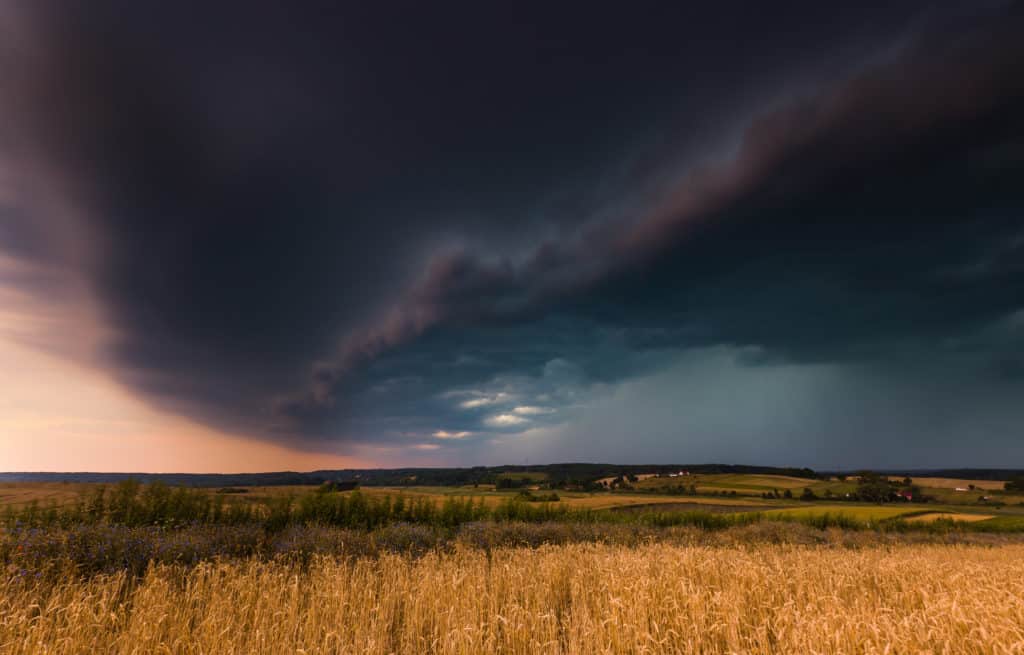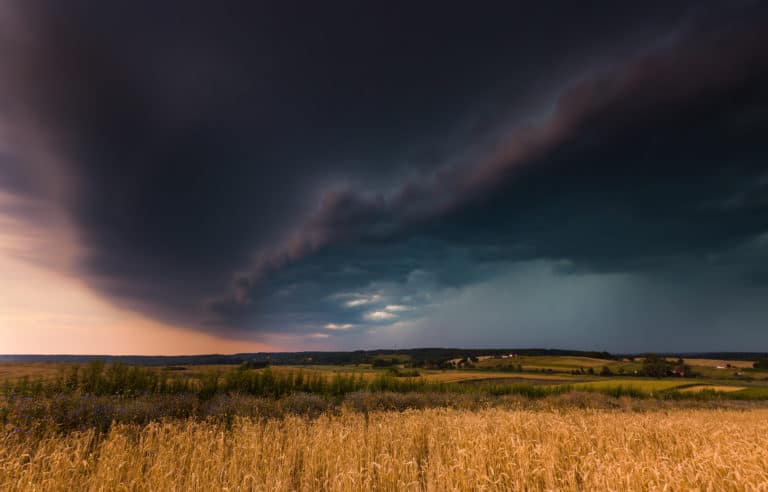Weather proverbs that are actually true


You’ve likely heard “Red sky at night, sailor’s delight; red sky in morning sailor take warning”. There are tons of these weather proverbs, problem is, most of them don’t really hold true. Take the red sky one, a red sky at either end of the day could be an indicator of good or bad weather; it depends on several other factors, such as the hue of the red and whether it is in the eastern or western sky. In short, it’s just not a useful proverb. However, here are 6 proverbs that actually are true, including a much more useful variation on red sky.
1) “If the goose honks high, fair weather. If the goose honks low, foul weather”
No, this has nothing to do with singing geese. Instead it has to do with how high (or low) the geese are flying. Geese are excellent long distance flyers, part of that is their ability to find the best air density in which to fly. If there is a high pressure system (an indicator of good weather) these birds find the best air to be up high. If it’s low pressure (an indicator of a coming storm) you’ll find the geese flying just high enough to avoid obstacles.
2) “When the pipes smell stronger, it’s going to rain”
In order for you to be able to smell anything, your nose has to collect particles and molecules off of the odorous thing. When the air is dry these particles float along on their own. However, in humid conditions, water molecules latch onto these particles like burs on your trousers. Those same water molecules make it much easier for your moist nose to catch the odor particles. In short, odors are easier to smell when the air is humid, and humid air can often lead to rain or thunderstorms.
So, if you’ve noticed your tobacco pipe, flowers, or dirty dishes happen to smell extra strong one morning, you might want to bring an umbrella with you!
3) “If the spiders are many and spinning their webs, the spell will soon be very dry”
Despite the incredible strength of spiders’ silk, a spiders’ web is very susceptible to wet conditions; the strong silk is thin and absorbs water, so much so that the weight of the water can cause the web to break. Fortunately for these tiny hunters, they have an excellent sense of humidity; when the air feels likely to rain, spiders will stay in their hiding spots. When they sense the air is dry and they know they have a couple days of good hunting, spiders will build their webs.
4) “Rainbow in morning, sailor take warning; rainbow at night, sailor’s delight”
This one is very similar to the famous “Red sky at night, sailor’s delight; red sky in morning, sailor take warning” but with a bit more truth to it (a red sky at either end of the day could be good news or bad news depending on several other factors).
A rainbow will always appear on the opposite side of the sun (in relation to you). So, in the morning they will appear in west and in the evening they will appear in the east. With the Earth’s rotation, the most likely weather for you to receive, is that coming from the west (no guarantee here as wind is a thing we have on Earth). Rainbows are visible after rain showers are over (droplets of water in the air, and clear skies allowing sunlight to hit them), and since fair weather usually follows after a rain shower, that means if you see a rainbow at night you’ll likely have a calm evening of sailing.
5) “If the clouds move against the wind, rain will follow”
Clouds are pushed around by wind, obviously. So if you notice the wind blowing in one direction yet the clouds are moving in a different direction, that means that the atmospheric conditions are different at the lower and upper levels. This is unstable and leads to storms; if the conditions are extreme enough, this is how hurricanes are formed.
6) When the ass begins to bray, surely rain will follow that day”
Have you ever stepped outside and been able to simply feel that a storm was coming? Especially a large thunderstorm, you can often feel it in the air, most often in the summer. This is because large rain and thunderstorms are often preceded by very low air pressure, and at times you can very much feel it.
No surprise, our more wild animal friends are a bit more in tune with these changes than we are; they can feel it more than we can and often get irritated by it. That’s why the farmer’s donkey brays more right before rain. You can notice it with other animals too. If you’re dog seems especially irritable and barking more than usual, you might want to consider an umbrella for his walk!

You might like these!



